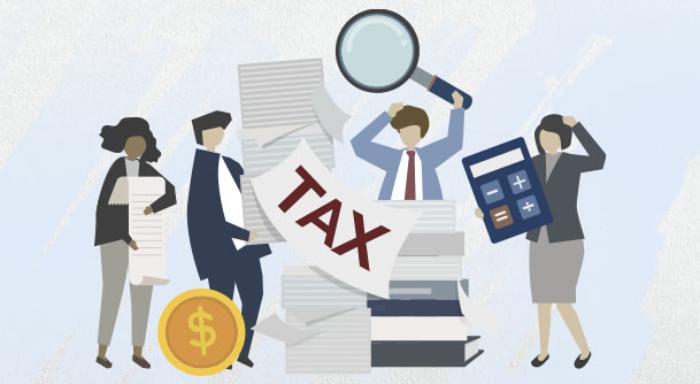Employee Provident Fund: How are EPF Withdrawals Taxed?
Blog Title
2889 |
10/17/24 4:30 AM |
The Employee Provident Fund (EPF) is a retirement benefit that is enjoyed by most salaried employees in India. As a salaried person in India, a part of your income is saved every month and put into a Provident Fund Account. And that’s not all, even your employer contributes an equivalent amount to your EPF account! The purpose of EPF is to create a savings pool and retirement fund that you can rely upon post your retirement. Making withdrawals from your EPF account is usually not allowed while you are still employed. However, there are certain exceptional cases where EPF withdrawals are permitted.
It is important to note that EPF withdrawals can be taxed! Understanding the tax rules for EPF withdrawals will help you maximise your income while reducing your tax burden. Here’s a quick guide on Employee Provident Fund withdrawals, as well as the regulations and deductions that you need to be aware of.
When Can You Make Withdrawals from Your EPF?
You cannot make withdrawals from your EPF freely while you are still employed. While the corpus saved in your EPF account is technically your money, there are regulations in place that prevent withdrawals under most circumstances. Execptions that allow you to make withdrawals from your EPF include:
When Employed:
Partial withdrawals are allowed if you have completed 5 years of continuous employment. You may withdraw money from your EPF for medical treatments, marriage, buying a house etc. Such withdrawals are tax free.
Withdrawals made prior to completing 5 years of service are taxable. However, there are certain exceptions where even early withdrawals are tax free. Exceptions include withdrawals made for medical expenses, financial emergencies etc.
When Unemployed:
- You can also withdraw 75% of your EPF savings after more than a month of unemployment.
If you are unemployed for an extended period of time (two months or more), you can withdraw 100% of your EPF balance.
Note that you will have to declare unemployment if you want to make withdrawals from your EPF account (unless you declare an emergency withdrawal).
Retired Persons:
Retirees who are no longer employed can withdraw 100% of their EPF balance without any taxation.
A person over 58 years of age may also withdraw the full balance even if they remain employed.
What are the Tax Laws Regarding EPF Withdrawals?
Any withdrawal made from your EPF account before completing 5 years of continuous service is subject to tax deduction at source. When you withdraw from your EPF account after PAN verification, the TDS applied with be 10% of the total amount withdrawn. However, if you withdraw without PAN verification, the TDS rate will be 30% (or more) of the total amount.
No TDS is deducted on EPF withdrawals when:
- Your total withdrawal amount does not exceed ₹50,000.
- You have completed more than 5 years of continuous service as an employee.
- If you complete your PAN verification and submit Form 15G/15H, you may avoid TDS on EPF withdrawals (if your income is below taxable limit).
Note that these 5 years of continuous service do not have to be with one company. Even if you worked with multiple different companies over the years, you will still be exempt from EPF deductions if your total years of service exceed 5 years. However, this exception is only applicable if you have transferred your previous EPF account to your new employer. So, you need 5 years of continuous service while maintaining the one EPF account. If you dissolve your previous EPF corpus after shifting to a new company, this exemption will not apply to you.
Some More Questions You May Have
Does Tax Apply to EPF Savings and Interest?
No! Your EPF savings and any interest they accrue are completely tax free while you’re still employed. You are only taxed upon withdrawing money from your EPF account, but the invested value itself is completely untaxed.
Can I Claim Tax Deductions on EPF?
Yes! If you are employed and are making regular contributions to your EPF account, you can claim deductions under Section 80C of the Income Tax Act. Your EPF contributions during the financial year will then be deducted from your total tax liability. Note that Section 80C allows for a maximum exemption of ₹1.5 lakhs in a given financial year. Moreover, this provision is only available under the Old Tax Regime of India.
Is EPF Taxable After Retirement?
While your EPF interest is not taxable while you’re employed, any interest you accrue post-retirement will be taxed as ‘income from other sources’.
Conclusion
Employee Provident Fund is a useful asset for anyone who wants to live a comfortable and stress-free retirement. However, sometimes you just need some extra cash to deal with life’s unexpected emergencies. In such cases, you can depend on your EPF corpus to gain some liquidity. Keep the rules and regulations mentioned above in mind when you need to make EPF withdrawals. But remember, only withdraw from your EPF as a last resort, as this fund can be of great help during your golden years!
Aastha Mestry - Portfolio Manager
An Author and a Full-Time Portfolio Manager, Aastha has 6 years of experience working in the Insurance Industry with businesses globally. With a profound interest in traveling, Aastha also loves to blog in her free time.





